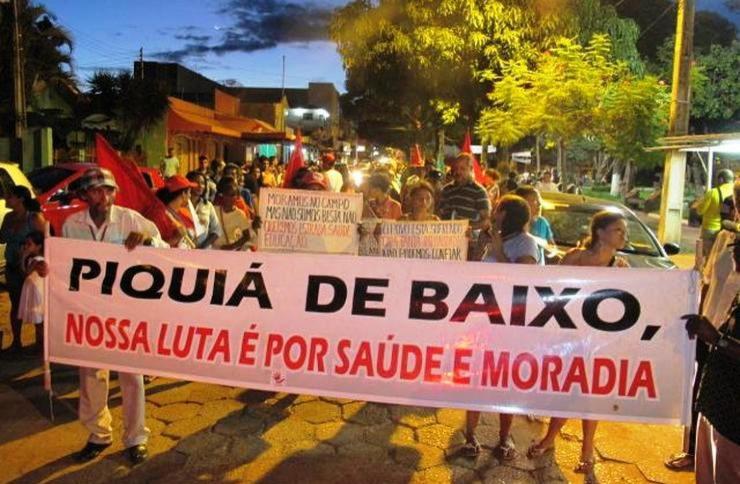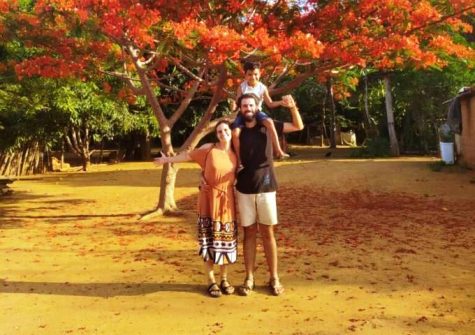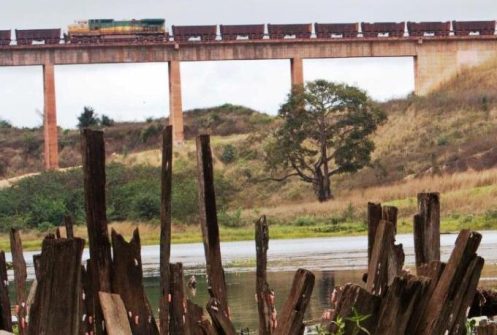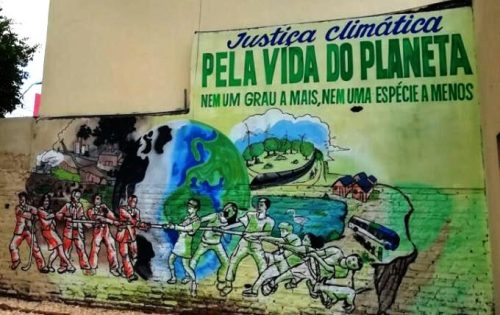Brazil. Resistance and Resilience of a People.

Two young lay Comboni missionaries talk to us about their experience among people fighting for their rights and dignity.
About 25 minutes have passed since the last whistle of that endless train with 300 carriages and 4 km long, and now another one is already arriving. As time goes by, we pay more and more attention to it. From our house, the noise of the train can be heard in the distance, while in the city the rattling of the railway line running over the heads of the inhabitants is more pronounced. The value of the mineral transported on it daily corresponds to millions of dollars, with no consideration for those who try to survive on only 5 dollars a day.
The history of Piquiá goes back almost 60 years and it would be a small paradise but it experienced the beginning of its decline in 1985, when the railway built by the mining giant Vale S.A. was inaugurated, for the transport of iron from the huge deposit in the Serra do Carajás, one of the largest mines in the world, in the distant city of São Luís. This involves 900 km of rails travelled non-stop every day for the export of minerals all over the world, including Italy.

Lay Comboni missionaries Gabriele and Anna with their daughter working in Brazil. “. It is here that we have inserted ourselves, among the wounds of this people, learning to know and give our support in this battle”. File swm
Our house is located a few hundred meters from Piquiá de Baixo. Our names are Gabriele and Anna, two 30-year-olds who have chosen to leave for Brazil as lay Comboni missionaries to participate in the missionary activity of the Comboni family of Açailândia, in the state of Maranhão. We are involved at the parish level in numerous activities, and we share moments of prayer and work activities with the Comboni Missionaries. Less than 2 km from our house there is a cement factory (Cimento Açai) and two iron processing plants (AVB – Aço Verde do Brasil, and Viena Siderurgica S.A.), both supplied with iron from Vale S.A.
Piquiá is a town that has undergone gradual depopulation; but after 20 years of struggle and eternal waiting, perhaps it is at a turning point in its history. It seems that the families who until now have suffered the negative consequences of the iron companies built around their lives will be able to move to a new neighbourhood, conquered with hope after a long struggle: Piquiá da Conquista. Located a short distance away, our neighbourhood suffers from the same damage present in Piquiá de Baixo: the iron plants, in fact, are active day and night, a process that generates black fumes, covers food, clothes and everything else with dust and often causes incurable respiratory diseases, tumours and other ailments. The wounds of this land, however, are even deeper.

“From our house, the noise of the train can be heard in the distance, while in the city the rattling of the railway line running over the heads of the inhabitants is more pronounced. Iglesia y Mineria
The so-called rural exodus caused by the arrival of soy and eucalyptus monocultures is growing in the countryside, which through the aerial spraying of pesticides no longer allows small farmers to live off the produce of their land. We are talking about the lives and stories of young people who only have one alternative for survival: working as labourers in the steel industry or in the soybean fields, becoming cogs in a machine that causes the negative conditions mentioned above. Living here, at the same time, teaches us to observe and learn from these same situations of suffering, faced with great resilience by the inhabitants.

“We are involved at the parish level in numerous activities, and we share moments of prayer and work activities with the Comboni Missionaries”.
Those who live in Piquiá or in the surrounding countryside do not give up in the face of this situation but continue to fight for their rights by building a new history, without abandoning their roots. There are stories of resistance against giants who are part of a system that involves us all. Despite the future inauguration of Piquiá da Conquista, in fact, the steel installations will continue, unabated, to pollute the surrounding air as has been the case for 40 years now; in rural areas, people will continue to fight against an agri-food system that is killing the environment. It is here that we have inserted ourselves, among the wounds of this people, learning to know and give our support in this battle. (Open Photo: A people’s struggle. Iglesia y Mineria)



